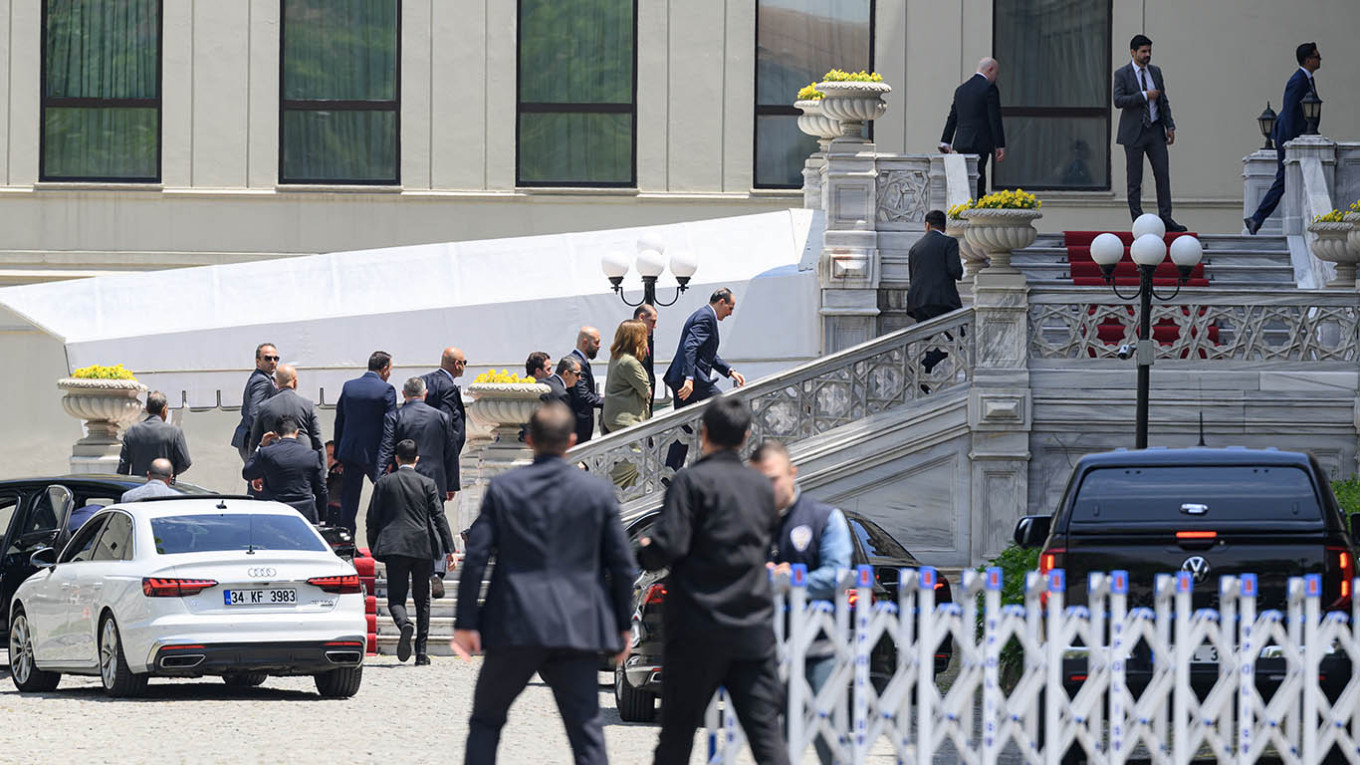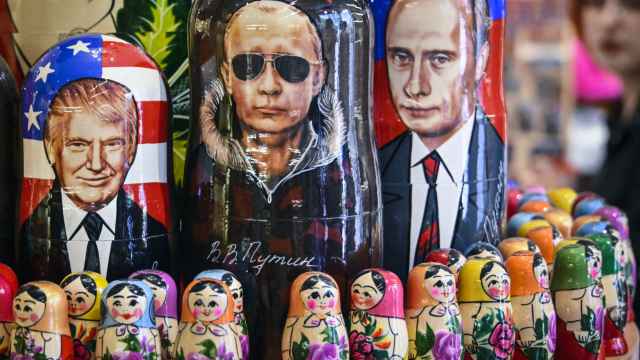Moscow and Kyiv are set to hold their third round of direct peace talks in Turkey on Wednesday evening following two earlier meetings this summer that made little progress toward ending the more-than-three-year war.
The Moscow Times takes a look at where the two sides stand ahead of the negotiations:
Who will represent Moscow and Kyiv?
The Russian delegation will once again be led by Kremlin aide Vladimir Medinsky, who served in the same role during previous talks, TASS said. Deputy Foreign Minister Mikhail Galuzin, Deputy Defense Minister Alexander Fomin and GRU military intelligence chief Igor Kostyukov are also expected to take part.
Kyiv tasked Rustem Umerov, the head of its National Security and Defense Council, with leading the delegation. Umerov also led the previous two rounds of talks in May and June, when he was Ukraine’s defense minister. Other members of the Ukrainian team will include representatives from its military intelligence agency, the foreign ministry and the presidential office.
What has already been achieved?
The two previous rounds of talks, held on May 16 and June 2 in Istanbul, resulted in agreements to exchange 1,000 prisoners of war each as well as bodies of fallen soldiers.
Both sides also exchanged draft memoranda outlining their respective visions for ending the war, with each side setting conditions seen by the other as nonstarters.
An especially tense atmosphere hung over the second round of talks as Medinsky — who has published several history books that promote Russian nationalism — invoked the Great Northern War of 1700-1721 as evidence that Moscow was ready to continue fighting Kyiv for as long as it takes.
Despite the relative lack of progress during these talks, Kremlin spokesman Dmitry Peskov said Tuesday that the “issue” of the war is “so complex that reaching an agreement on prisoner exchanges or the return of bodies is already a tangible outcome.”
What is in the peace proposals?
Ukraine’s latest framework reiterates that a full and unconditional ceasefire on land, sea and in the air for at least 30 days is a necessary prerequisite for negotiations. It also said that territorial issues can only be discussed after a ceasefire and that Russia’s territorial gains “are not recognized by the international community.”
Russia’s version ties a ceasefire to Ukraine’s full withdrawal from the partially Moscow-held Donetsk, Luhansk, Zaporizhzhia and Kherson regions. According to documents published by state agencies, Moscow’s proposal also calls for an end to Ukrainian mobilization and Western military support for Kyiv, the withdrawal of foreign personnel from Ukraine and the formal recognition of Crimea and the four partially occupied regions as part of Russia.
The Russian memorandum also calls for Ukraine's permanent military nonalignment and for restrictions on the size of its armed forces. Kyiv rejects these demands, saying that “Ukraine is not forced to be neutral. It can choose to be part of the Euro-Atlantic community and move towards EU membership.”
“Ukraine’s membership in NATO depends on consensus within the Alliance,” the Ukrainian memorandum said.
What has changed since the last meeting?
While the front line remains largely unchanged since the second round of talks, the broader diplomatic landscape surrounding the war has shifted.
U.S. President Donald Trump has taken a more aggressive stance toward the Kremlin, issuing last week a 50-day deadline to resolve the war and allowing Europe to buy U.S. weapons for Ukraine.
Washington would impose “very severe tariffs” at about 100% “if we don't have a deal in 50 days,” Trump said, expressing that he was "very, very unhappy" with Russia. There also would be "secondary tariffs" that target Russia's remaining trade partners if a peace deal is not reached by then.
Putin has not personally commented on the threats, but his spokesman Peskov said the Kremlin “needs time to analyze what was said in Washington.”
Commenting on Trump’s remarks, Deputy Foreign Minister Sergei Ryabkov said Moscow prefers diplomacy over confrontation but added that “any attempts to make demands, especially in the form of ultimatums, are unacceptable to us.”
The Kremlin has tampered hopes for a swift resolution, saying Tuesday that “there is no reason to expect any breakthroughs of a miraculous nature” at this week’s talks with Ukraine.
Moscow also said that "a lot of work lies ahead" before any discussions about a potential face-to-face meeting between Putin and Zelensky, who last met in 2019, can even begin.
For his part, Zelensky said Tuesday that during the upcoming peace talks Ukraine is “ready to work as productively as possible for the release of our people from captivity and the return of abducted children, as well as to stop the killings and to prepare a meeting of leaders for the real end of this war.”
“Our position is as transparent as possible. Ukraine never wanted this war, and it is Russia that must end the war that it itself started,” Zelensky said.
A Message from The Moscow Times:
Dear readers,
We are facing unprecedented challenges. Russia's Prosecutor General's Office has designated The Moscow Times as an "undesirable" organization, criminalizing our work and putting our staff at risk of prosecution. This follows our earlier unjust labeling as a "foreign agent."
These actions are direct attempts to silence independent journalism in Russia. The authorities claim our work "discredits the decisions of the Russian leadership." We see things differently: we strive to provide accurate, unbiased reporting on Russia.
We, the journalists of The Moscow Times, refuse to be silenced. But to continue our work, we need your help.
Your support, no matter how small, makes a world of difference. If you can, please support us monthly starting from just $2. It's quick to set up, and every contribution makes a significant impact.
By supporting The Moscow Times, you're defending open, independent journalism in the face of repression. Thank you for standing with us.
Remind me later.






